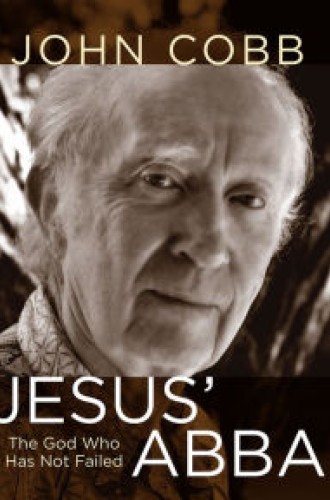Cradled by God
The word Abba could be imagined as a baby’s first syllables. In Matthew 18, Jesus tells his disciples that to be oriented to the kingdom of heaven they must turn from their disagreements and become like trusting children. In the following chapter Jesus receives little children into his arms as if they were peers or family members. He notices them, blesses them, and declares that their innocence makes them heirs of the kingdom. Abba’s spirit at work in the world, John Cobb believes, is like the relationship of love and trust between a young child and a parent. Convinced that these commitments were central to Jesus’ faith, Cobb culminates some 60 years of writing with a personal testimony to his own awareness of Abba.
This book is like a casual evening conversation that treats theology seriously as a matter of importance for Christians and the wider world. Cobb revisits topics that will be familiar to his students and loyal readers—including faith and science, interfaith dialogue, and the environmental crisis. A sympathetic friend of feminist experiments in crafting gender-free language for Christian worship, Cobb acknowledges the lessons of equality taken from these projects over the years. Accordingly, he emphasizes as Abba’s essential characteristic the loving attention and care that a mother or father might give to an infant.
Cobb’s aim is to direct liberal Christians toward devotion to the biblical God, whom Jesus knew as Abba. He reads the Bible as a book of history and life (including the 90-plus years of his own life), as a sequence of events that might be charted through historical analysis and reflection. Cobb believes that Abba, the God Jesus introduced to the world, still works for good in personal biographies such as his own, in cooperative communities such as the retirement community where he lives, and more broadly in society and in creation.




